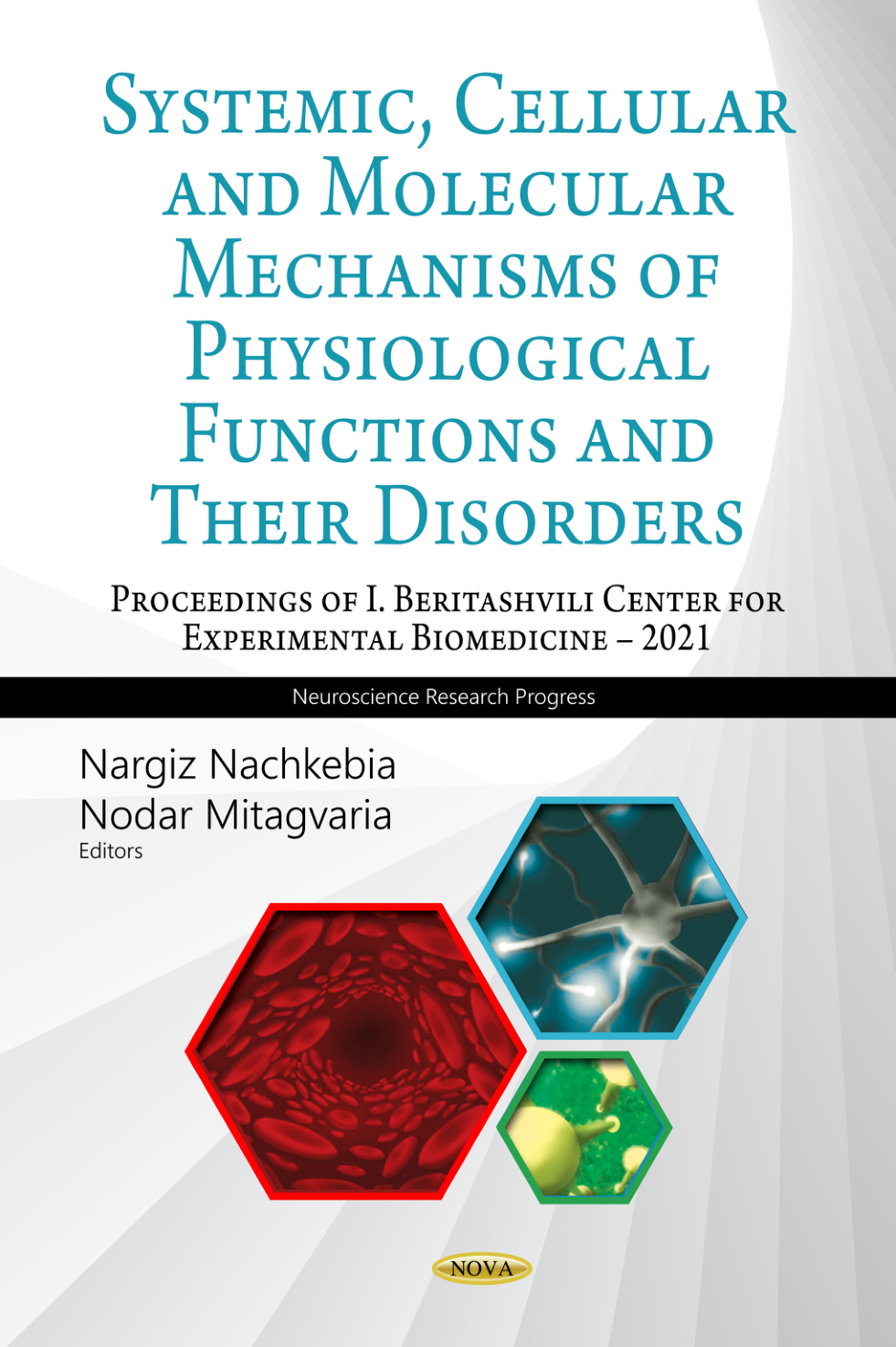- 丛书名 : Biochemistry Research Trends
- 中图分类号: Q5
- 语种: ENG
- 出版信息: Nova Science 2021 348页
- EISBN: 9781685071356
- PISBN-P: 9781685071134
- 原文访问地址:
KG评星
知识图谱评星,是一种基于用户使用的评价体系,综合图书的评论数量、引文数量、Amazon评分以及图谱网络中节点的PageRank值(即考虑相邻节点数量和重要性)等多种因素计算而得出的评价数值。星级越高,推荐值越高。CAT核心级
核心学术资源(CAR)项目作为教图公司推出的一项知识型服务,旨在打造一套科学、有效的图书评价体系,并协助用户制定相应的馆藏建设方案。CAR项目调查和分析12所世界一流大学的藏书数据,以收藏学校的数量确定书目的核心级,核心级越高,代表书目的馆藏价值越高。选取核心级在三级以上,即三校以上共藏的图书作为核心书目(CAT)。The Ivane Beritashvili Center of Experimental Biomedicine was established in 2010 on the basis of the well-known Ivane Beritashvili Institute of Physiology, the most prominent research center of Georgia, where basic and applied research in different fields of neurophysiology has been conducted since its foundation. Professor Ivane Beritashvili was a famous Georgian scientist who gained international recognition during his lifetime. He was one of the founders and members of the Georgian Academy of Sciences and a member of three academies of sciences of the former Soviet Union. He was an honorary member of the New York Academy of Sciences, the American Society of Electroencephalography, the Royal Society of England, the American Society of Biological Psychiatry, and an honorary member of the International Brain Research Organization. He was an honored scientist of Georgia, a laureate of the State Prize, and a recipient of many orders and medals. Ivane Beritashvili is remembered in history as a person who founded the Department of Physiology at the newly opened Tbilisi State University. He developed physiological terminology in Georgian, wrote a textbook of physiology in Georgian for the students of the university, raised successful scientists from the first generation of his students, and founded the Georgian School of Physiology. In 1935, he founded the Institute of Physiology in Tbilisi, which soon gained recognition and became well-respected by a wide range of foreign scientists who often visited Georgia. In 2010, three scientific institutions were merged with the Ivane Beritashvili Institute of Physiology – the Institute of Molecular Biology and Biophysics, the Center of Radiobiology and Radiation Ecology and the Center of Experimental Neurology, the first two of which, for many years, were the departments of the Institute of Physiology. This edited book is the third such compilation containing chapters that represent the research priorities of the Ivane Beritashvili Center of Experimental Biomedicine, which covers the experimental study of fundamental issues in the functioning of physiological (mainly neurophysiological) mechanisms during normal and pathological conditions. The first and second books – “Systemic, Cellular and Molecular Mechanisms of Physiological Functions and Their Disorders” - published by Nova Science Publishers Inc. in 2015 and 2018, were also devoted to the same general problems. In the present edited book, particular attention is drawn to the study of extremely important processes underlying the basic mechanisms and disorders of various phenomenon of integrative activity of the brain: general behavior, learning and memory, the sleep-wakefulness cycle, regulation of adequate blood supply, hormesis, epilepsy, depression, sleep disorders, pain and analgesia. All of the mentioned processes are studied on the molecular, cellular and systemic levels of their organization. It has to be noted that each chapter, within the collection of works, represents the results of separate, independent studies implemented by different scientific departments of the center. Therefore, the chapters are not directly related to each other and have been arranged alphabetically based on the surname of the authors. The authors would like to take this opportunity to present to the reader the scientific and institutional infrastructure of the center, which consists of departments and laboratories. Nowadays the center consists of seven departments: Neurophysiology, Membranology, Biochemistry, Blood Circulation and Metabolism, Neurotoxicology, Membranology, Biophysics and Radiobiology and nine laboratories: Neurobiology of Sleep-Wakefulness Cycle, Vision Physiology, Behavior and Cognitive Functions, Brain Ultra- and Nano-Architectonics, Experimental Neurology, Pain and Analgesia, Structure and Functions of Genomes, Bioinformatics, a







 京公网安备 11010602104826号
京公网安备 11010602104826号
